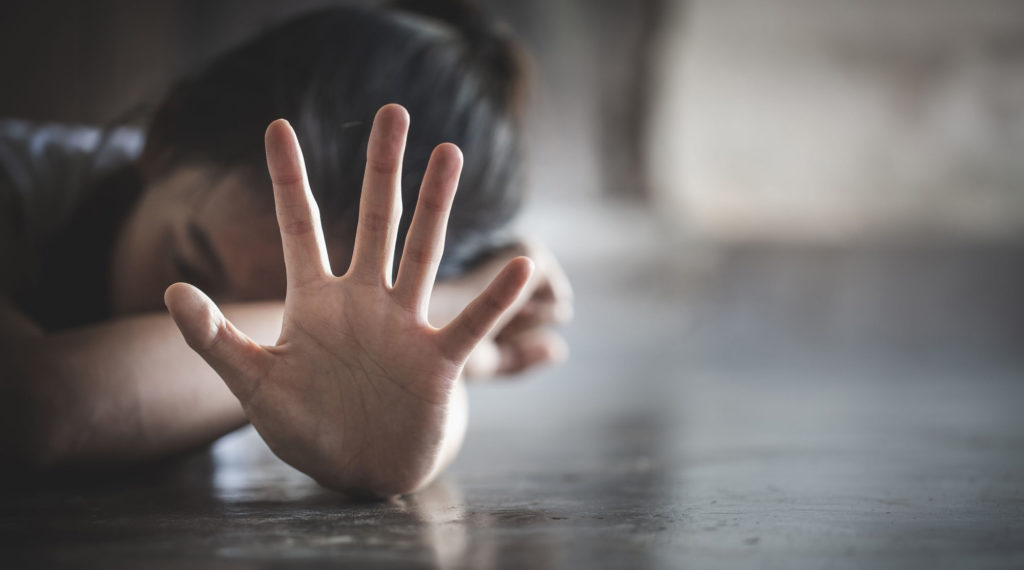Cost of a Domestic Violence Lawyer
If you have been the victim of domestic violence, it may be difficult to know where to turn for help. Whether the abuse was physical, sexual or psychological, you are likely feeling devastated and alone, unsure of how to proceed while also protecting yourself and your loved ones. Domestic violence is a serious public health issue in the United States, affecting more than 12 million women and men every year. Unfortunately, the coronavirus pandemic has only intensified the problem, exposing domestic violence victims to an increased risk of abuse amid widespread stay-at-home orders that leave them vulnerable to their abusers. For victims of domestic abuse, retaining an experienced domestic violence lawyer is the first step in protecting themselves from harm and holding perpetrators accountable for their actions.
Table of Contents
- What is Domestic Violence?
- Abuse Prohibited by the Illinois Domestic Violence Act
- Domestic Violence and the COVID-19 Pandemic
- Unemployment and Economic Hardship
- What Does a Domestic Violence Lawyer Do?
- Filing for a Restraining Order
- What Does it Cost to Retain a Lawyer?
- Questions to Ask a Prospective Lawyer
- Why You Want a Lawyer on Your Side
- Statute of Limitations
- What to Do if You are the Victim of Domestic Violence
What is Domestic Violence?
Domestic violence is a term used to describe any type of abuse in a domestic partnership, such as a marriage, engagement, dating relationship or cohabitation. Although many domestic violence situations involve physical abuse, not all of them do. Domestic violence can also include acts of sexual, emotional, economic or psychological abuse perpetrated by an intimate partner or family or household member against another, as well as threats or controlling behavior designed to coerce, manipulate, intimidate or harass. According to the U.S. Department of Justice, misdemeanor or felony crimes of violence are considered domestic violence when they are committed against someone by:
- A current or former spouse or intimate partner of the victim,
- A person with whom the victim shares a child in common,
- A person who is cohabitating with or has cohabitated with the victim as a spouse or intimate partner,
- A person similarly situated to a spouse of the victim under domestic or family violence laws of the jurisdiction, or
- Any other person against an adult or youth victim who is protected from that person’s acts under the domestic or family violence laws of the jurisdiction.
Abuse Prohibited by the Illinois Domestic Violence Act
Under the Illinois Domestic Violence Act, domestic abuse is a criminal offense, whether the abuse involves a married couple, a divorced couple, co-parents, children, people who are engaged or dating, or other family or household members. Under Illinois law, any of the following may constitute domestic violence:
- Physical abuse, such as hitting, slapping, scratching, shoving or pushing
- Sexual abuse, including non-consensual sexual relations or inappropriate touching
- Intimidating behavior, including name-calling or verbal threats
- Harassment, such as repeatedly calling or sending texts, or showing up at the person’s home or workplace
Domestic Violence and the COVID-19 Pandemic

As the coronavirus pandemic continues to claim lives and cause millions of workers to lose their jobs, most people are concerned about keeping up with their financial obligations and protecting their own health and the health of their loved ones during COVID-19. But for people in abusive households, their most pressing concern is likely whether the stay-at-home orders meant to slow the spread of COVID-19 will heighten their risk for domestic violence. Power, control and social isolation are three common tactics used by perpetrators of domestic violence against their victims, and experts fear that the conditions created by the coronavirus pandemic and the isolation required during the quarantine is causing abuse to flourish in households across the country.
Unemployment and Economic Hardship
The unemployment rate in the United States has hit an all-time high due to COVID-19, as have levels of economic anxiety, and these are both factors that have been linked to a greater risk of domestic violence. According to Jennifer Copp, a professor at Florida State University’s College of Criminology and Criminal Justice, economic hardship, unemployment, employment instability and perceptions of economic strain are all connected to domestic violence, or intimate partner violence. Domestic violence is rooted in power and control, and at a time when job security and financial stability seem uncertain, physical, emotional or psychological abuse becomes a way for abusers to regain a sense of control.
What Does a Domestic Violence Lawyer Do?
If you have been the victim of domestic violence, you may be eager to file a personal injury claim against your alleged abuser so you can work towards protecting yourself and recovering the compensation you deserve for the harm you have suffered. Personal injury cases are handled in civil court and an experienced domestic violence lawyer can help you navigate the legal system, build a strong case against your abuser, present your case before a judge and jury, and advocate for you during each stage of your case. Some domestic violence cases involve other complex legal matters, such as divorce, child custody and visitation, restraining orders and/or paternity rights, in which case it is more important than ever to retain an experienced lawyer who can ensure that you understand your rights and options under the law. When it comes to domestic violence cases, your future is on the line. You don’t want to leave your case in the hands of an inexperienced attorney who doesn’t have a proven record of success handling domestic violence cases.
Filing for a Restraining Order
Being the victim of domestic violence is frightening, and chances are, you are still in fear for your safety or your children’s safety. When you hire a domestic violence lawyer, he or she can file for a domestic violence restraining order to protect you and your family from your alleged abuser. There are three main types of restraining orders in domestic violence cases:
- Order of Protection – An order of protection is a court order that can order the offender to refrain from certain actions, including committing further abuse, contacting you, possessing firearms or entering your shared living space. An order of protection can also grant temporary care of your children.
- Civil No-Contact Order – A civil no-contact order is a “stay away” order that can be filed by victims of sexual assault who do not have a current or past relationship to the offender. This type of order can order the offender to refrain from contacting you or possessing firearms.
- Stalking No-Contact Order – A stalking no-contact order is a “stay away” order for stalking victims who do not have a current or past relationship with the offender. This type of order can order the offender to refrain from contacting you or possessing firearms.
What Does it Cost to Retain a Lawyer?
Domestic violence comes in many forms. It can involve acts of physical and/or sexual violence, emotional abuse, economic deprivation or threats and intimidation, among other behaviors designed to cause harm or invoke fear. Victims of domestic violence may be hesitant to retain a lawyer to represent them without knowing exactly how much it will cost them, especially during a crisis like COVID-19 when there may be some uncertainty surrounding their financial situation. Before you begin working with a personal injury lawyer on your domestic violence case, it is important that you understand how and when you will be charged for his services.
The cost of a domestic violence lawyer can vary a great deal depending on the lawyer’s experience and area of expertise, the complexity of the case and the firm’s reputation, among other factors. Most personal injury law firms will offer a free consultation, during which you can discuss some minor details about your case and determine whether the firm is a good fit, at no cost to you. Additionally, many work on a contingency fee basis, meaning you pay nothing up front and they simply deduct their fees and any additional costs or expenses from your settlement. If you win your case, your lawyer is entitled to a certain percentage of the total amount you recover, usually between 33% and 40%.
There are some attorneys who charge by the hour instead. If you retain an attorney who charges by the hour, you will be billed for every hour the lawyer spends working on your case, whether that involves making phone calls, filing paperwork or collecting medical records and other documentation. In this kind of arrangement, you will be responsible for paying the lawyer, whether you win or lose your case. While it is not necessarily the smartest choice to go with the most expensive domestic violence lawyer you can find, you don’t want to choose the cheapest option you come across either solely based on cost. Taking into consideration cost and any other factors you deem important, choose the lawyer you feel most comfortable with and who you believe can help you get through this situation quickly and efficiently, with the best possible outcome, given the circumstances.
Questions to Ask a Prospective Lawyer
One of the most important aspects of your domestic violence case is the cost. Legal fees can be complicated, so you will want to get as many cost-related details as possible during your initial consultation. The following are some good questions to ask a prospective domestic violence lawyer about the potential cost of your case:
- Do I have to pay anything up front?
- Do you bill at an hourly rate?
- Do you require a retainer?
- What do you estimate the final cost to be?
- What percentage of the settlement will I receive?
- How will I be billed?
- Will I be required to pay anything if I don’t win a settlement?
- Who will cover the cost of expenses?
- What are the estimated court fees?
- How can I keep the cost down?
Why You Want a Lawyer on Your Side
If you choose to pursue a personal injury lawsuit against your alleged abuser, you have the right to represent yourself in your case without hiring an attorney. That being said, domestic violence cases tend to involve complex legal matters and if you don’t have experience in these areas, you could end up damaging your case. When you are involved in a legal crisis like domestic violence, you want a personal injury lawyer on your side who will fight for your rights and use his extensive knowledge of personal injury law and trial experience to your advantage. You need a compassionate and steadfast legal advocate you can trust to handle your personal injury case with precision, care and persistence. In domestic violence cases, a skilled personal injury lawyer can help in many ways, including the following:
- Investigating your case
- Filing necessary legal paperwork
- Meeting important deadlines
- Maximizing your compensation
- Presenting your case in court
- Negotiating on your behalf
- Providing sound legal advice
- Taking your case to court
- Protecting your rights
- Representing your best interests
- Advocating for you before and during trial
Statute of Limitations
Every state has a limit on how much time you have to file a personal injury lawsuit against the person who caused your injuries. This time limit is known as the statute of limitations. In Illinois, you only have two years to file your personal injury lawsuit in civil court, beginning from the date you suffered harm or the date you discovered that the harm occurred. If you have been the victim of domestic violence or sexual assault and the statute of limitations expires before you have the chance to file your civil suit, you could be barred from seeking compensation for your injuries.
What to Do if You are the Victim of Domestic Violence
First and foremost, if you are the victim of any kind of domestic violence and you are in need of immediate help, call 911 or contact state or local law enforcement officials. Your immediate safety and the safety of your family is of the utmost importance in any domestic violence situation. Next, you will want to ensure everyone’s long-term safety and that is where a domestic violence lawyer comes in. A good lawyer will be familiar with domestic violence laws in Illinois and can explain how they apply to your case in a way that you understand. If you are wondering if you need a personal injury lawyer, remember that many firms offer a free consultation at no cost to you. Finding an attorney you can trust to have the experience, knowledge, tenacity and resources necessary to help you fight for the compensation you deserve can be a time-consuming process, so don’t wait to call.
Related Posts:
Latest Posts
One Comment Hide Comments
Comments are closed.



[…] The Chicago Police Department reported a 12% increase in domestic violence-related calls from the be… “Folks in these isolated situations, and these additional stressors really just lead to increased incidents of domestic violence,” said Olivia Farrell, Advocacy and Policy Manager with The Network: Advocating Against Domestic Violence, which runs Illinois’ domestic violence hotline in partnership with Chicago’s Department of Family and Support Services. […]